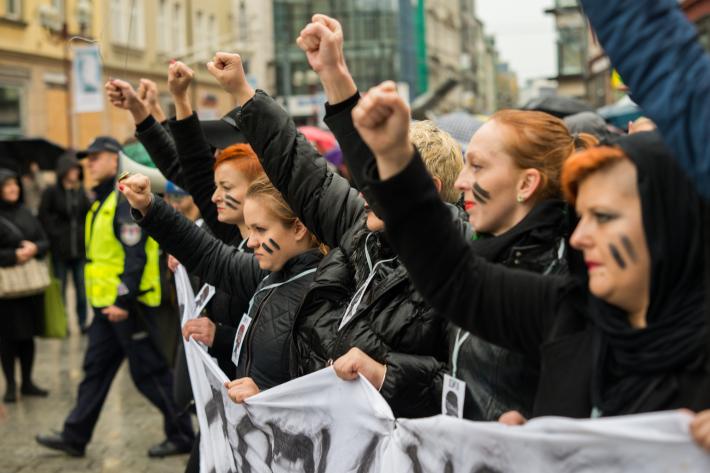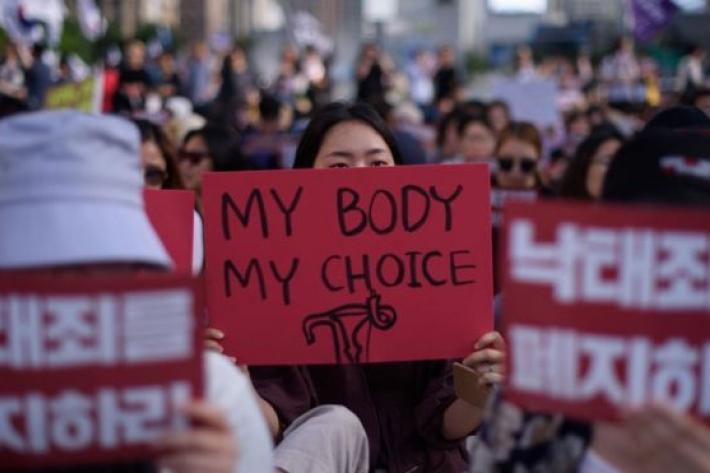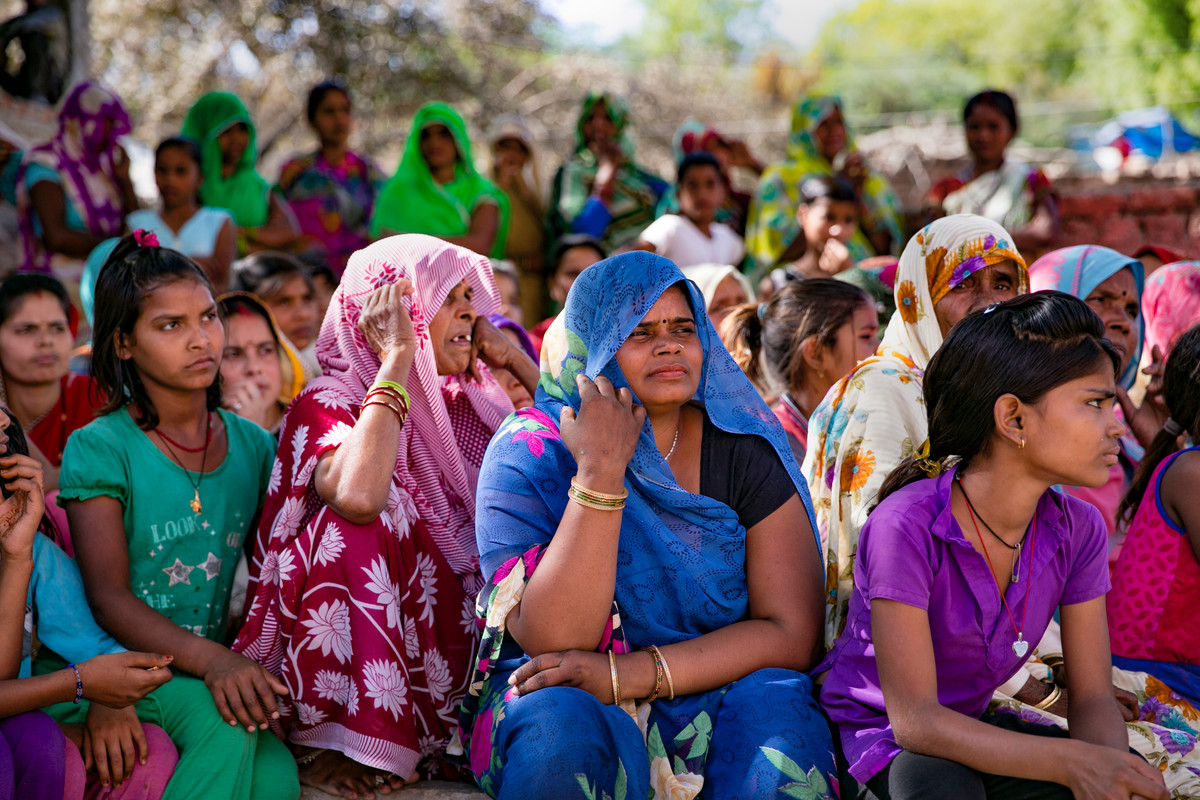
Spotlight
A selection of news from across the Federation

IPPF Statement on the 68th session of the Commission on the Status of Women (CSW)
IPPF welcomes the agreed conclusions of the 68th session of the Commission on the Status of Women (CSW), on the theme of “Accelerating the achievement of gender equality and the empowerment of all women and girls by addressing poverty and strengthening institutions and financing with a gender perspective”. IPPF actively engaged in the process by providing technical inputs to Member States, raising awareness about the interlinkages between SRHR, poverty, gender equality and the empowerment and human rights of all women and girls.
Filter our news by:


| 28 January 2021
Polish women’s lives at risk as illegal near-total abortion ban takes effect
As of yesterday, 27 January, a near-total ban on abortion has become the reality for women in Poland as the October 2020 judgement of the country’s Constitutional Tribunal was published in the journal of laws. This unlawful judgement would remove the possibility for women to access abortion in cases of severe and irreversible foetal defects, and threaten doctors who provide abortion care with 3 years in prison. The wording, which dismisses women’s wellbeing as a valid reason for termination of pregnancy, opens the way to potential further bans of abortion in cases of rape and incest. Angry citizens immediately took to the streets in 51 cities around the country, and further mobilisation is planned over the coming days. The announcement results from the deliberate dismantling of the rule of law in Poland. The president and three of the judges of the Constitutional Tribunal were illegally and politically appointed in order to steer the rulings of this crucial body. Poland is in legal limbo. The announcement cannot be considered a legal act. “This move is an outrageous violation of authorities’ basic duty to protect the life and health of their citizens. It will endanger women. It is intended to create terror and lead to the prosecution of doctors and any family member, friend or other person helping women to access this vital care,” said IPPF European Network’s Irene Donadio “We stand with Polish women and with the brave individuals who will continue to help women to access abortion care when they need it, in spite of this violent, illegitimate move. Outraged Polish citizens are fighting to support doctors and family members threatened with criminal sanctions, and expose those who choose to side with this cruel announcement, betraying and harming women and their families,” added Donadio. The Polish government must stop trying to silence ordinary people with the same violent repression and attacks we have witnessed this past three months from law enforcement and far-right groups. Citizens must be protected. This illegal announcement is only one example of abuse by Poland’s authoritarian government which now exerts a near-absolute control over the country’s judicial institutions. It opens the door for further dangerous judgements, including the dismantling of protection for victims of domestic and gender-based violence, offered by the Istanbul Convention. Respect for the rule of law and independence of the judiciary are fundamental European principles. But in Poland they have been replaced with rule, by the most powerful, and by cruelty and dogma. Polish people need the EU to help uphold the rule of law and democracy in their country. We stand with them. Europe must not abandon Polish citizens. IPPF media contact: Irene Donadio [email protected], +32 491 71 93 90

| 22 January 2021
IPPF awaits President Biden’s decision to repeal the Global Gag Rule
On the eve of the anniversary of Roe v Wade; the International Planned Parenthood Federation (IPPF) awaits the news of President Biden’s decision to keep his promise and repeal the harmful Global Gag Rule (also known as the Mexico City Policy). Since its expanded reintroduction in 2017 by the previous administration, the Global Gag Rule has increased unintended and high-risk pregnancies, unsafe abortions and maternal death around the world. IPPF’s Director-General, Dr Alvaro Bermejo said: “For the past four years, the Global Gag Rule has been the biggest threat to sexual and reproductive healthcare and every day without a repeal is an additional day of suffering. Women around the world are watching with hope. “For the US to once again become a global champion of sexual and reproductive healthcare, not only must it immediately repeal GGR but it must go further and take urgent action to make the repeal permanent. “The road to recovery will be long, and will require a global effort to strengthen healthcare systems to ensure sexual and reproductive health and rights are fully protected - regardless of who sits in the White House. “The Biden-Harris Administration brings with it a new horizon; one filled with hope and stability. IPPF looks forward to rebuilding our relationship with the United States to ensure sexual and reproductive healthcare is a right and reality for all." IPPF stands as a united Federation that will do all it can to ensure the Biden-Harris Administration permanently repeal the Global Gag Rule, so that it will no longer be a threat to women under future Administrations. IPPF would like to thank the international community including donors, activists and partners, who stepped in and stepped up to help fill the funding gap that was left by the Global Gag Rule. Together, we will continue to fight and deliver sexual and reproductive health and rights for all. Image source: Photo by Aaron Burden on Unsplash

| 05 January 2021
A win for women's rights: South Korea decriminalizes abortion care
The International Planned Parenthood Federation welcomes the news of the removal of abortion care from South Korea’s Criminal Code effective from 1 January 2021. This means those seeking abortion care will no longer face legal barriers in accessing care. Abortion in South Korea was illegal in most circumstances from 1953 to 2020. On April 11, 2019, the Constitutional Court ruled the abortion ban unconstitutional and ordered the law's revision by the end of 2020. Revisions to the law were proposed in October 2020, but not voted on by the deadline of 31 December 2020. The Ministry of Health and Welfare announced that they will consider expanding coverage of health insurance to include abortion care and the approval of mifepristone (used in medical abortion). IPPF’s Director-General, Dr Alvaro Bermejo said: “Abortion care is a human right, and those rights are now being realized in countries with some of the strictest abortion laws. The decision to remove abortion from South Korea’s criminal code is a step in the right direction for women’s rights, but we also know there is much work to do. ‘Conscientious objection’ cannot be allowed to limit access to abortion care. IPPF and its Member Associations will continue to fight for safe and legal abortion care for those who need it.” Ms Kyung Ae Cho, Secretary-General, Korea Population, Health and Welfare Association (KoPHWA) said: “I am pleased that we reached here today [repeal of the criminal provision on abortion] as a result of many years of efforts led by Korean women. "With these changes, law amendments and services are urgently needed, including expanding Universal Health Coverage (UHC), to ensure equal access to reproductive healthcare for all women. We [KoPHWA) shall continue to deliver accurate and rights-based information and counselling on safe abortion care appropriate to the Korean women context, and contribute to the fulfilment of universal access to sexual and reproductive health for all women worldwide.”
| 29 December 2020
A historic moment: Argentina legalizes abortion
The International Planned Parenthood Federation (IPPF) welcomes the news of a historic decision by the Senate of the Republic of Argentina approving a national law on legal, safe and free abortion. The law will allow all women and adolescents access to abortion care for up to 14 weeks of pregnancy. IPPF celebrates the collective effort of thousands of activists, feminists, and grassroots organizations that continued to fight for access to safe and legal abortion care. With the approval of this law, Argentina will become the fourth country in Latin America to legalize abortion care, joining Cuba, Guyana, and Uruguay. IPPF’s Director General Dr Alvaro Bermejo said: ‘This historic moment cannot be understated; a similar bill was put forth to the Senate in 2018 and was narrowly defeated. But the fire in the hearts and minds of hundreds of thousands of activists from all walks of life, was burning, and they continued to fight. The human right for all women, girls, and gender non-conforming people to have autonomy over their bodies to decide whether to be pregnant or not, is now a reality for millions of Argentinians. "I hope that the Argentinian Green Wave becomes a spark for the rest of Latin America and the Caribbean and inspires countries to change their abortion laws, as millions of women and girls still lack access to safe and legal abortion in the region and are coerced to risk their lives by turning to unsafe abortions.’ The law includes: Abortion care deadlines: Abortion care is available for up to 14 weeks of gestation. Once an abortion care service is requested, it must be performed within 10 days. Comprehensive and free coverage: Abortion care must be included in the Compulsory Medical Program (PMO) to guarantee integral and free coverage in all Argentinian health sub-systems. Informed consent: Consent in writing must be provided by people seeking an abortion. Anyone at the age of consent (16 years old) does not need to be accompanied by an adult. Anyone under the age of 13 years old, will require the assistance of at least one parent or legal representative. ‘Conscientious objection’ and referral to guarantee abortion: Those who deny abortion care based on ‘conscientious objection’ are required to refer the clients to another facility that will provide the service. The law stipulates that "in all cases, abortion care must be guaranteed" and that "the steps and costs associated with the referral and transfer shall be borne by the service that makes the referral". Kate Gilmore, chair of IPPF’s Board said: "Argentinian Green Wave, we thank you. Your persistence, bravery, solidarity, and compassion will continue inspiring us all to realize women’s right to safe and legal abortion care all over the world." Image credit: Gabriela Bacin Gemetro

| 18 November 2020
IPPF honours the Trans Day of Remembrance
On the Transgender Day of Remembrance (20 November 2020), IPPF remembers the transgender people whose lives have been lost globally to transphobic violence, and stands in solidarity in the fight for trans rights. This year the Trans Murder Monitoring (TMM) project added 350 trans and gender-diverse people to the list of people to be remembered worldwide. This project systematically monitors, collects and analyses reports of homicides of trans and gender-diverse people worldwide. The world needs to wake up and understand that transphobia and its violence is a destructive aggression of social prejudice that denies people their human rights. IPPF works to change laws in countries to support gender and sexual diversity. We spotlight the Indonesian Planned Parenthood Association (IPPA/PKBI) who are fighting for to halt the Penal Code revisions that criminalises and stigmatises gender and sexually diverse persons, including trans people. IPPA produced a short film "Emak Menolak", highlighting the challenges of trans people in Indonesia. Check it out below: IPPF will continue to fight and stand in solidarity with the trans community until their rights are realized and respected, because trans rights are human rights. Will you join us?

| 18 November 2020
IPPF welcomes the adoption of the UN General Assembly Third Committee resolutions on women and girls’ rights, gender equality and SRHR
IPPF welcomes the adoption of the UN General Assembly Third Committee resolutions on women and girls’ rights, gender equality and sexual and reproductive health and rights. The Third Committee is a critical intergovernmental space with the full membership of the United Nations (UN), which agrees on normative standards and frameworks on human rights, gender and sexual and reproductive health and rights. IPPF closely followed the negotiations on intensification of efforts to prevent and eliminate violence against women and girls, child early and forced marriage (CEFM), women and girls and COVID-19, intensification of efforts to prevent and eliminate Female Genital Mutilation (FGM), efforts to end obstetric fistula and trafficking of women and girls. IPPF applauds the resounding commitment of Member States to uphold the principles of gender equality, preventing and combating Sexual and Gender-Based Violence (SGBV), fulfilling women and girls’ rights, including SRHR, as demonstrated in the adoption of all gender-related resolutions and in the six separate cross-regional statements delivered on behalf of about 70 countries at the adoption sessions of the Committee. Despite attempts to weaken and/or risk the longstanding agreements made in Cairo, Beijing and in the Agenda 2030, the vast majority of the UN membership supported the adoption of the texts as negotiated. We deeply regret the call for a vote by the Russia Federation on the resolution addressing prevention and elimination of violence against women and girls that should enjoy political consensus given the global backdrop where levels of violence perpetrated against women and girls during the COVID-19 pandemic, specifically intimate partner violence are rising – also known as the ‘hidden pandemic’. Member States resoundingly adopted strong texts that acknowledged the impact of COVID-19 on increased levels of violence, CEFM and ensured coordinated and strong responses in responding to the sexual and reproductive health needs and rights of women and girls specifically during the pandemic. The resolution addressing the prevention and elimination of violence against women and girls makes fundamental calls for Governments to ensure women and girls’ access to justice, SRHR and comprehensive sexuality education, while recognizing Intimate Partner Violence (IPV) as the most prevalent and least visible form of violence against women across all social strata across the world.














